The story of the Made in China car company: From the ‘anonymous’ ridiculed by Elon Musk to Warren Buffett’s nearly 40 times more profitable investment
- Tram Ho
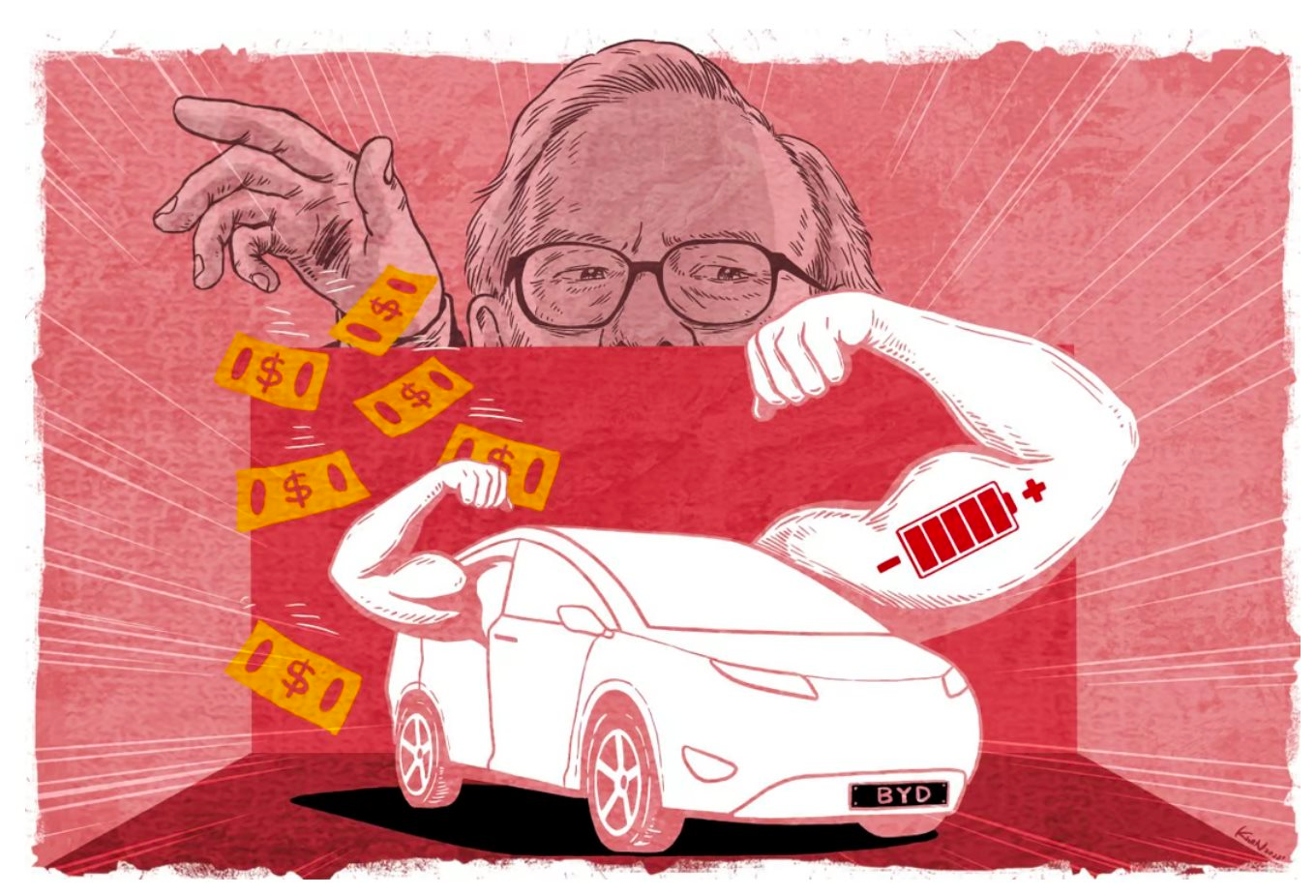
Elon Musk once laughed when asked about the ability to compete with BYD, which launched battery-powered cars in southern China three years before Tesla. What makes Musk laugh is that the e6 car – a compact car, tested to run 370 km on a single charge, takes just over 8 causes to go from a standstill to 97 km/h.
The story above took place in November 2011, just half a year after Tesla listed on Nasdaq, making Musk one of the richest people in the world. Twelve years later, BYD is the “biggest winner” in the electric vehicle market.
The electric car maker has delivered 1.86 million hybrid electric cars by 2022. Meanwhile, Tesla has delivered just over 1.31 million. And BYD has become the largest electric vehicle manufacturer in the world.
Investors who believe in Berkshire Hathaway’s investment in BYD in 2008 are also benefiting greatly. The company’s stock price has increased 40-fold since Vice President Charlie Munger decided to invest when BYD was a faceless business. Currently, BYD’s market capitalization is $98 billion, roughly the value of General Motors and Ford Motor combined.
So, what potential does Warren Buffett’s “right-hand man” see in BYD, while Musk isn’t afraid to mock the company?
How did the world’s “biggest” electric car company develop?
Jeff Cai, JD Power China’s lead consultant, said : ” BYD possesses many advantages, first is the battery has higher efficiency than competitors. Second, BYD has a wide range of products and designs. timely to reach customers more effectively .”
BYD produces dozens of models in two segments. The Dynasty line – which includes models named after the kings of China from the Han to Yuan dynasties, features 17 models aimed at middle-class households. The Ocean line has a sporty design, attracting young buyers.
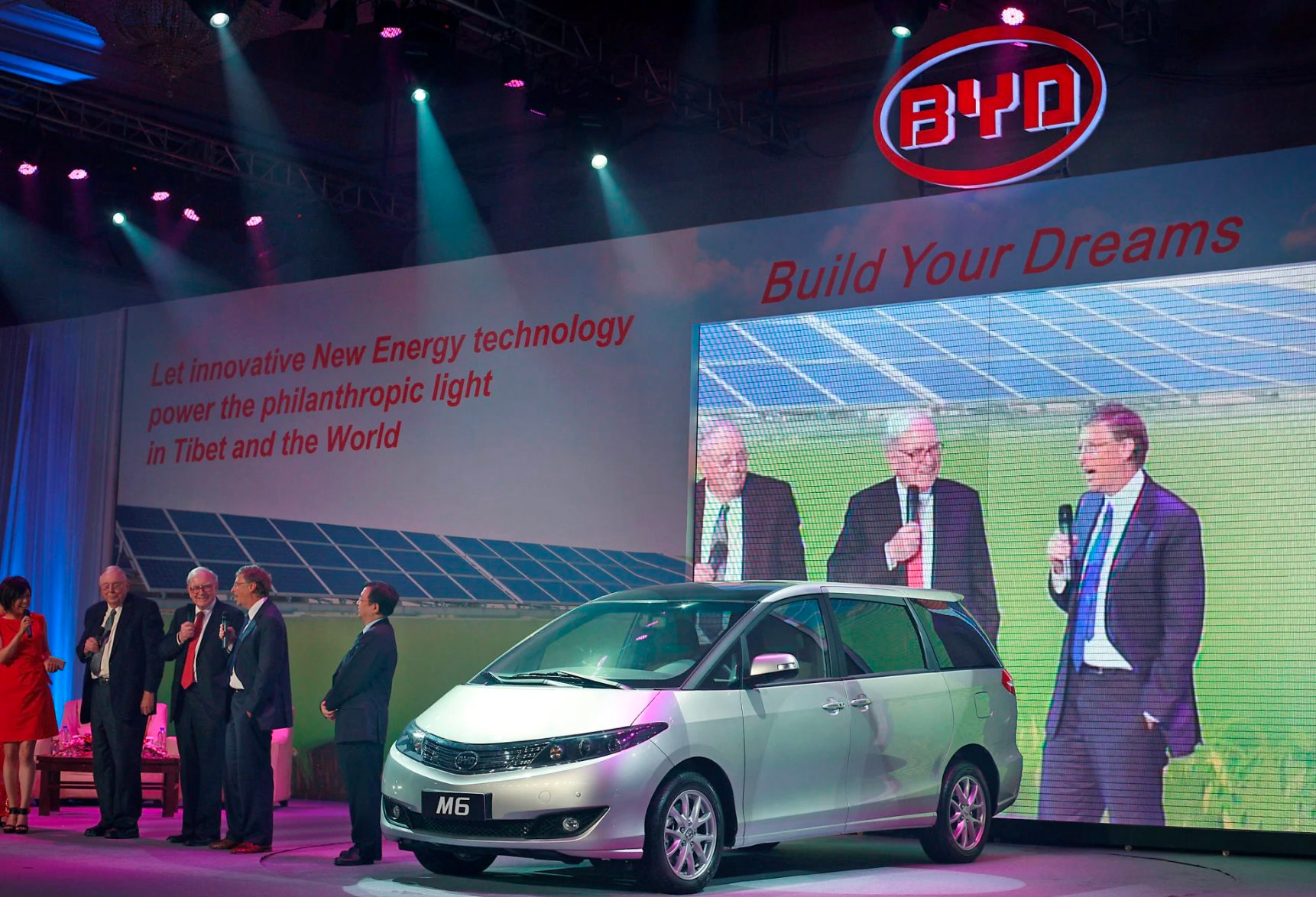
Charlie Munger, Warren Buffett, Bill Gates at BYD’s M6 launch event in 2010.
For BYD, the secret to their success is their belief that one day batteries will be the “dominant” power source of everything, even replacing fossil fuels for cars.
Originally, BYD was a company that produced dry cells and batteries for mobile phones. They were just a newcomer in the automotive sector, and only expanded into this segment in 2003 after purchasing a license from Xi’an Tsinchuan Auto from the Shaanxi provincial government and contractor Norinco Group.
Their first model was the F3, a small, simple car with a 1.6-liter gasoline engine and sold for 40,000 yuan ($5,850). By keeping the price much lower than the 100,000 yuan mark many consider, BYD has become the brand of choice for new car buyers, giving them an edge over tough competitors like Toyota and Honda. .
Since then, BYD has grown rapidly. When Musk laughed at the mention of BYD, the company has been in the auto industry for eight years and is China’s sixth-largest assembler. After that, the mainland quickly overtook the US to become the world’s largest auto market.
Over the next decade, BYD invested heavily in batteries, using petrol-electric hybrids to gradually replace the all-gasoline cars it was producing. Last year, it announced that it would completely end production of internal combustion engine vehicles and switch to electric vehicles.
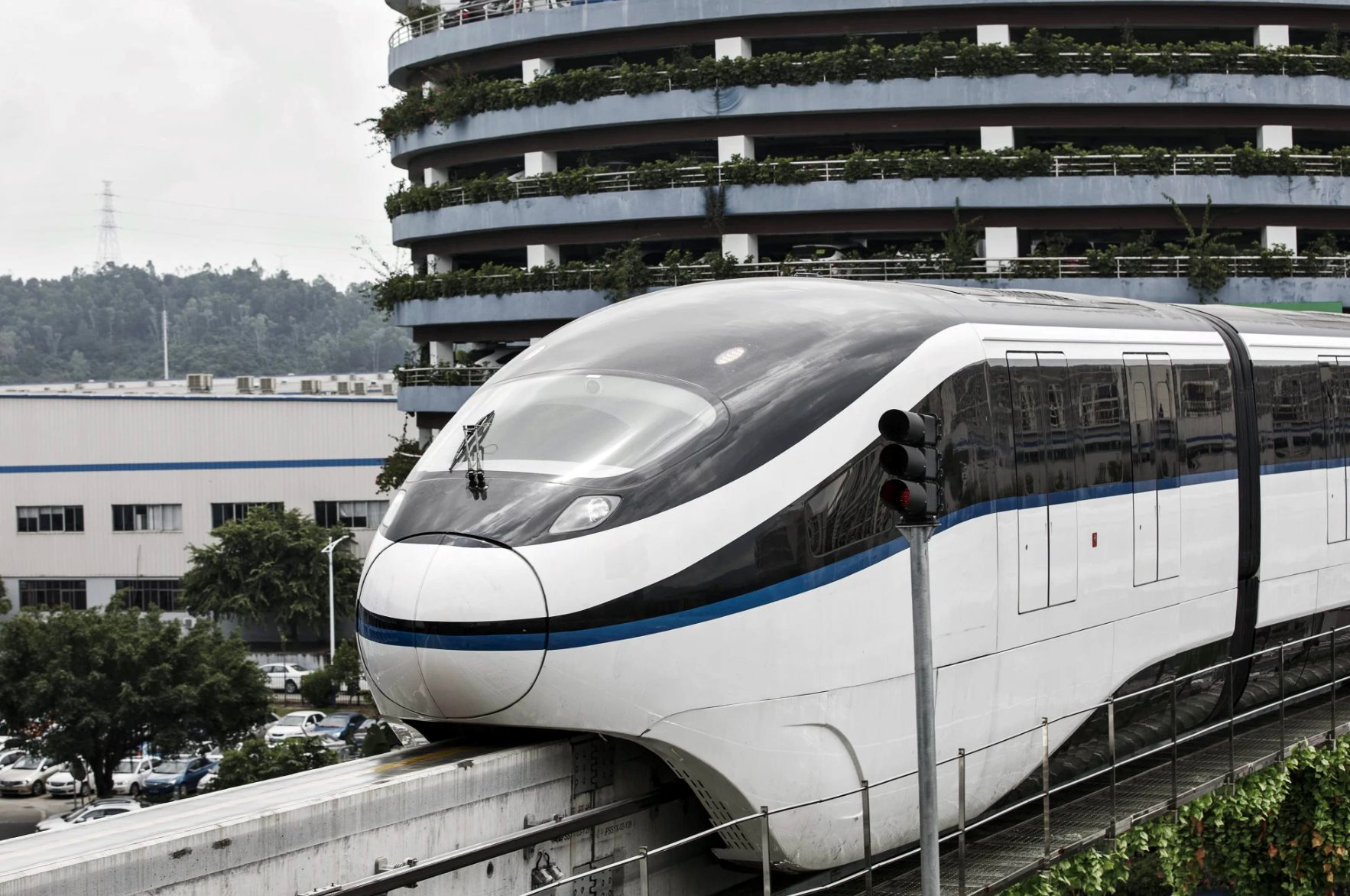
The sky train runs on BYD’s campus in Shenzhen headquarters.
However, BYD’s journey to the top still encounters obstacles. Before the e6 hit the market, BYD was developing the F3e, an electric version of its famous F3. BYD aims to charge up to 70% of battery capacity in just 10 minutes and travel 300 km, for 150,000 yuan.
The F3e project was canceled in 2010 before going into production. The reason is that China’s electric vehicle market is still young, lacking a network of charging stations to serve customers.
Holds almost every link in the supply chain
However, BYD founder Wang Chuanfu persisted. The two executives, who spoke on condition of anonymity, said Wang was steadfast in his efforts to invest in innovation, develop new models and increase production capacity until the goal is achieved.
With BYD, innovation is key. In the early days, BYD figured out how to manufacture phone batteries at room temperature, which competitors need to install in dry rooms and are very expensive. Two decades later, the company has scaled up to innovate electric vehicles. BYD’s Blade batteries are more fire resistant than the competition, without affecting the performance of electric vehicles.
In 2022, BYD produced 70.4 GWh of batteries, or 13.6% of the global market. Accordingly, they became the world’s third largest electric vehicle battery manufacturer after CATL and LG.
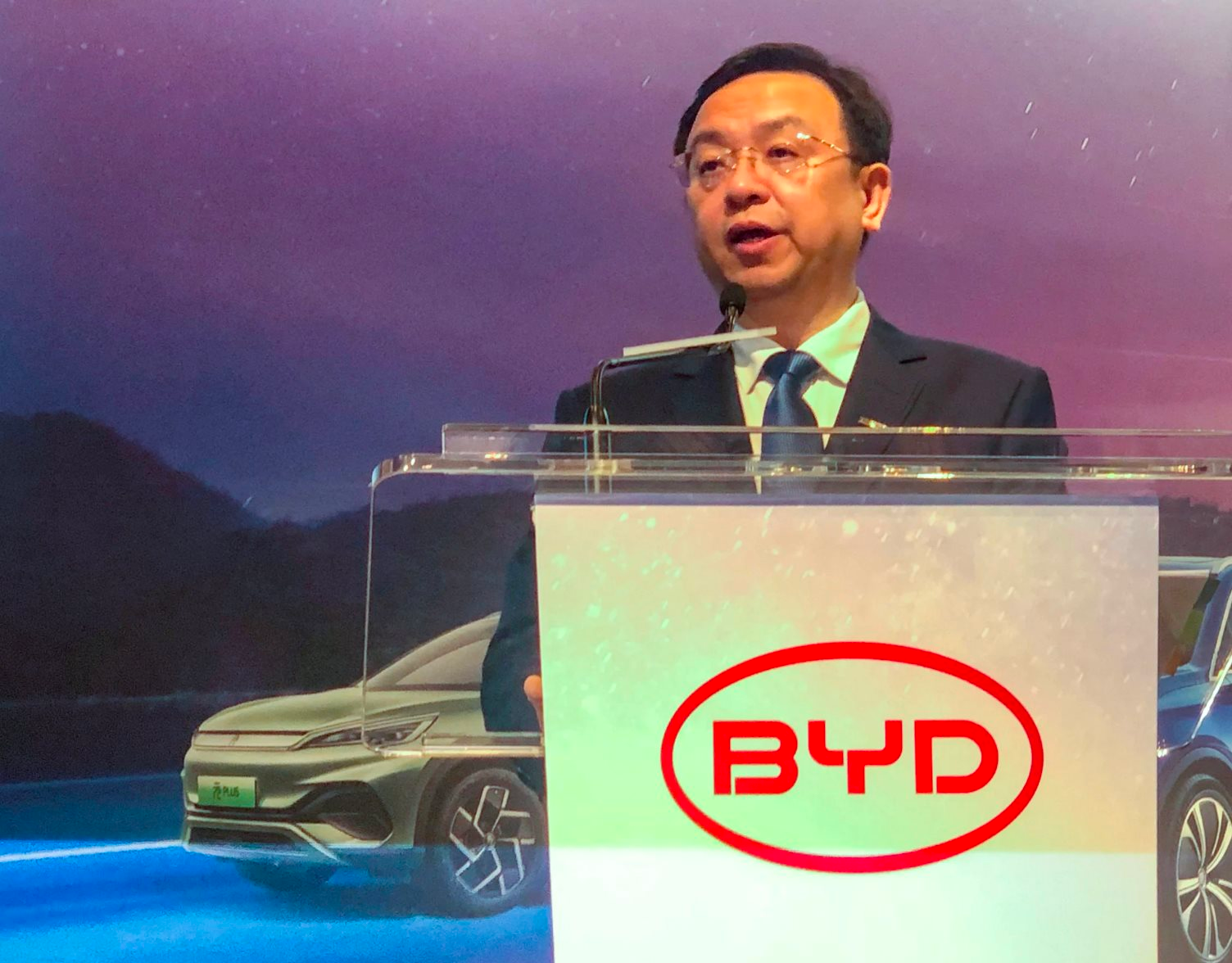
BYD founder Wang Chuanfu.
Tesla was also “stunned” with BYD’s growth, so much so that it also used Blade batteries for the Model Y made in Berlin last year. Earlier this month, Tesla announced that it would build a factory next to the Gigafactory in Shanghai to assemble Megapack batteries, but denied that the Blade battery was discontinued.
More importantly, BYD owns the entire electric vehicle battery supply chain, from minerals and raw materials to the finished battery. This helps BYD control costs, margins and deliveries more efficiently. The company also operates its own energy storage and chip design division.
Thanks to that, BYD still thrived last year, as competitors from NIO to Tesla all struggled due to supply chain disruptions. BYD recorded a 150% increase in sales growth.
Han EV is BYD’s luxury electric vehicle line. This is a 4-door sedan, has a travel range of about 715 km after 1 charge and can accelerate from a standstill to 100 km / h in 3.9 seconds. This car has a Nappé leather steering wheel with decorative wood motifs and costs about 300,000 yuan.
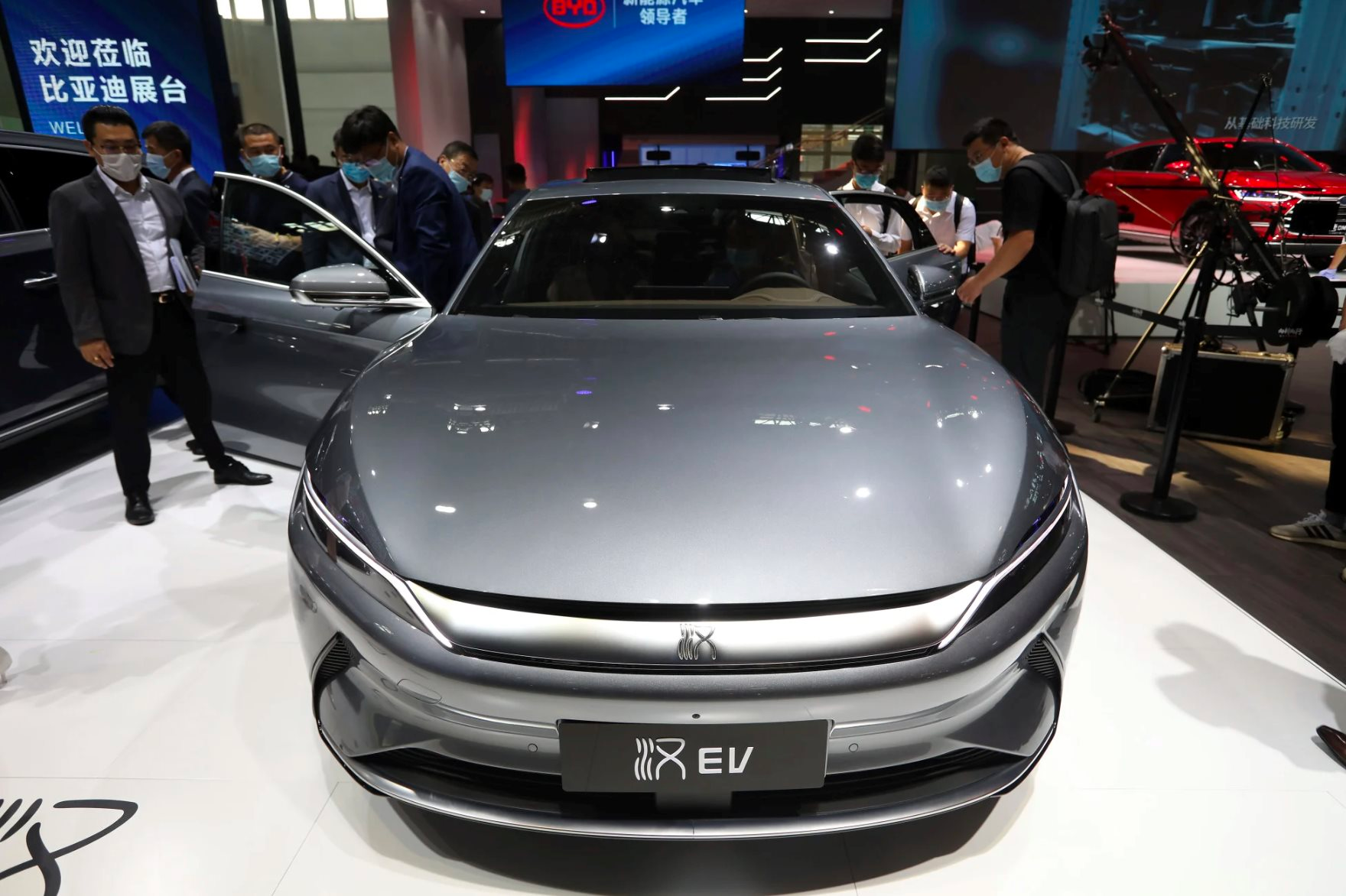
BYD’s Han EV.
This week, BYD also introduced a body control system called DiSus that keeps the driver in place when the vehicle is cornering at high speeds and prevents the vehicle from tipping over.
According to Wang, it is the first Chinese automaker to own and develop such impressive in-house technology, a “breakthrough that helps fill the gap between domestic and foreign technology.”
BYD still has a long way to go
However, BYD still has a lot of work ahead of it, said Chen Jinzhu, CEO of consulting firm Shanghai Mingliang Auto Service. He said the automaker isn’t even in the top 10 of JD Power’s technology intelligence rankings for Chinese electric vehicles.
” BYD is not yet capable enough to develop autonomous driving systems and digital cockpits ,” says Chen, which are features that have now become standard as electric cars become smart vehicles.
Meanwhile, BYD is “doing all the work” to make its electric cars smarter, like a “super phone with wheels” to compete with luxury rivals.
BYD has worked with many partners to develop this goal. The company joined Baidu’s Apollo project in 2017 to use an open platform to develop self-driving capabilities. Han EV is using HiCar system with Harmony operating system of Huawei Technologies.
The company is actively promoting its models in South America, Europe, Southeast Asia, India and the Middle East. In the US, BYD has been manufacturing battery-powered buses in Lancaster, California since 2017.
Musk has so far changed his attitude towards BYD. During his January earnings release, the billionaire said “several Chinese companies” would be Tesla’s biggest competitors. ” We admire Chinese auto companies. They are the most competitive in the world ,” he said.
BYD executives have more modest statements. They note that only 1.4 of the 26.86 million new vehicles sold last year in China were electric.
Brian Luo, BYD’s assistant general manager of brand and public relations, said: ” We still have a lot of room to develop. I’ve heard people compare BYD to Tesla, call us. China’s VW or China’s GM. But we’ve never compared ourselves to any other business, because we’re not just a car manufacturer .”
Refer to SCMP
Source : Genk
